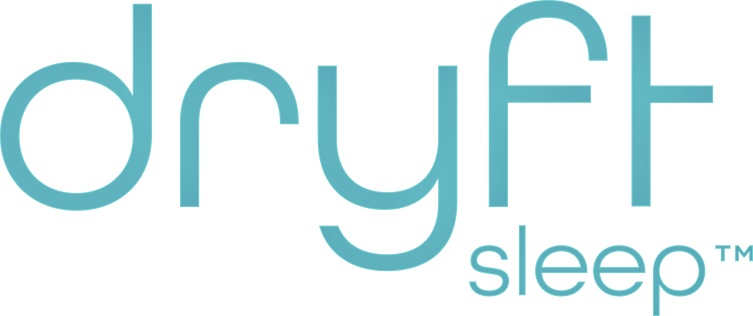5 Common Causes of Bad Breath and How to Tackle Them

TL;DR
- Bad breath can be caused by a variety of factors, from the foods we eat to our oral hygiene habits.
- Dry mouth, tobacco use, and certain medical conditions can also play a significant role in breath odor.
- Addressing the root causes and being proactive in our oral care can make a world of difference.
- Tools like Dryft Sleep mouth tape can be game-changers in promoting better oral health.
- Always listen to your body; sometimes, our breath is a subtle hint about our overall health.
-----
Hey there! We've all been there, right? You're in the middle of a conversation, and suddenly you're hit with a whiff of... well, something less than pleasant. And no, it's not the leftover tuna sandwich from lunch. It's bad breath. Now, while it might seem like just a minor inconvenience, bad breath can actually be a sign that something's off in our overall wellness. It's more than just an embarrassing moment; it's our body's way of waving a little red flag.
But here's the good news: understanding the root causes of bad breath can be the first step to tackling it head-on. And trust me, it's not always about that garlic bread from last night's dinner. Sometimes, it's about the little things we overlook in our daily routine. Speaking of which, let's dive into one of the most common culprits...
Poor Oral Hygiene
Let's dive a bit deeper into this whole oral hygiene thing. Now, I get it. Life gets busy. Sometimes, hitting the snooze button feels way more appealing than spending those extra minutes brushing and flossing. But here's the deal: our mouths are like mini ecosystems. And just like any ecosystem, when things get out of balance, problems start to pop up.
When we skip out on brushing or flossing, we're basically rolling out the red carpet for bacteria. These tiny party crashers thrive on the food particles left in our mouths. And as they break down these particles, they release sulfur compounds. Ever caught a whiff of rotten eggs? Yeah, that's the kind of aroma we're talking about.
But here's the kicker: it's not just about fresh breath. Poor oral hygiene can lead to a bunch of other issues like cavities, gum disease, and even tooth loss. Yikes, right? So, if you're looking for a sign to up your oral care game, consider this it.
Now, a little pro tip from me to you: consider how you breathe when you're catching those Z's. Breathing through your mouth can dry it out, making it a prime spot for bacteria to thrive. And speaking of dry mouths...
Dry Mouth (Xerostomia)
You know, when it feels like you've been talking for hours in the middle of the Sahara? That's dry mouth for ya. And while it might seem like just an annoying sensation, it's got some deeper implications
Our saliva is basically the unsung hero of our mouths. Think of it as nature's mouthwash. It's constantly working, washing away leftover food bits, neutralizing acids, and keeping those pesky bacteria in check. But when our saliva production takes a nosedive, things can go south real quick. Without enough of it, our mouths become a playground for bacteria, and let's be real, no one's inviting them to the party.
So, what's the deal? Why do some of us feel like we've got a desert in our mouths? Well, a bunch of factors can play into it. Some medications have dry mouth as a side effect. Health conditions like diabetes or Sjogren's syndrome can also be culprits. And, of course, there's our old friend, nighttime mouth breathing. If you're a mouth breather when you snooze, you might be drying out your oral oasis. But hey, there are ways to combat this, like using products that promote nasal breathing. Ever heard of Dryft Sleep mouth tape? It's a game-changer for many.
Now, while we're on the topic of things that can affect our oral health, there's another big player we need to address. It's been around for ages, and while it might seem cool to some, it's anything but cool for our breath. Yep, you guessed it...
Tobacco Products
Let’s talk about the elephant in the room: tobacco. Now, I'm not here to lecture anyone – we all have our vices. But when it comes to our mouths, tobacco is like that uninvited guest who crashes the party and leaves a mess behind.
First off, smoking or chewing tobacco can stain those pearly whites. I mean, who wants their smile to scream "I love coffee and cigarettes" even if, well, you do? But it's not just about aesthetics. Tobacco messes with our saliva flow, and remember our chat about saliva being the MVP of our mouths? Less saliva means a drier mouth, and we've already covered that territory.
But here's the real kicker: tobacco products, whether you're lighting up or dipping, are packed with chemicals that linger in the mouth. These chemicals not only give you that distinct smoker's breath but can also irritate the gums and lead to some serious oral health issues down the road.
Now, I get it. Kicking the habit is easier said than done. But if you're looking for one more reason to ditch tobacco, think about your breath and overall oral health. It's a game-changer.
Speaking of game-changers, ever noticed how certain foods can turn your breath from fresh to funky in a matter of minutes? Yeah, we've all been there. Which brings us to our next point...
Diet and Foods
Alright, foodies, this one's for you. We all have those go-to comfort foods that make our souls sing but might make our breath... well, less than harmonious. Ever had a killer Italian meal only to realize you're exhaling garlic like a dragon? Been there, done that.
First off, let's talk about the usual suspects: garlic, onions, and spicy foods. These bad boys contain compounds that not only linger in our mouths but also enter our bloodstream and make their way to our lungs. So, even after brushing, you might still be puffing out some aromatic reminders of your last meal.
But it's not just the strong-flavored foods. Ever indulged in a sugary treat and felt that weird film on your teeth? That's because sugar is like a VIP invite for bacteria. They feast on it, multiply, and throw a stinky breath party in your mouth.
Now, I'm not saying you should ditch your favorite foods. Life's too short for that! But being mindful of what you eat, especially before social events or, say, a big date, can save you some awkward moments. A quick rinse, a mint, or even just drinking water can help neutralize those food odors.
But here's a curveball for you: sometimes, it's not just what you eat but underlying health issues that can affect your breath. Which brings us to a topic many don't often consider...
Medical Conditions
Sometimes, bad breath isn't just about that onion bagel you had for breakfast or forgetting to brush before bed. Sometimes, it's a sign that something deeper might be going on in your body. It's wild to think about, but our breath can actually give us clues about our overall health.
- Sinus and Respiratory Infections: Ever had a cold or sinus infection and noticed your breath taking a turn for the worse? That's because the bacteria causing the infection can also produce foul-smelling compounds. Plus, all that mucus (sorry for the visual) can be a breeding ground for more bacteria.
- Acid Reflux or GERD: This condition means stomach acids flow back into the esophagus. Not only can this be uncomfortable, but it can also bring up stomach odors into the mouth. It's like a burp gone wrong, but it sticks around.
- Diabetes: When not managed properly, diabetes can result in a condition called ketoacidosis. This is when the body, unable to use sugar due to a lack of insulin, starts breaking down fat for energy. This process produces ketones, which can make your breath smell fruity or even a bit like nail polish remover.
- Kidney Issues: The kidneys play a crucial role in filtering toxins from our blood. When they're not functioning properly, a buildup of toxins can result in a breath that's described as fishy or ammonia-like.
- Liver Disease: A poorly functioning liver can lead to an increase in certain compounds in the blood, which can result in a musty or sweet odor in the breath.
Now, it's essential to remember that while bad breath can be a sign of these conditions, it's just one of many potential symptoms. If you're concerned about persistent bad breath or other symptoms, it's always a good idea to chat with a healthcare professional. They can provide insights, run tests, and give guidance tailored to your situation.
Conclusion
In the grand tapestry of life, our breath might seem like a small thread, but it's one that weaves its way through so many aspects of our health and well-being. From the foods we savor to the habits we form and even the underlying health conditions we might face, our breath tells a story. It's a reminder that our bodies are intricate, interconnected systems, always communicating in ways we might not always notice. By understanding the common causes of bad breath and taking proactive steps to address them, we're not just freshening our exhales; we're investing in our overall wellness. So, the next time you catch a whiff of something off, take a moment to listen to what your breath might be telling you. And remember, whether it's a lifestyle change or a simple tool like Dryft Sleep mouth tape, there are always solutions at hand to help you put your best breath forward.
FAQs
I brush and floss regularly, but I still have bad breath. Why?
While brushing and flossing are essential for maintaining oral hygiene, other factors can contribute to bad breath. This includes the foods you eat, dry mouth, certain medications, and even some medical conditions. If you've been diligent with your oral care and still experience persistent bad breath, it might be worth consulting with a dentist or healthcare professional to explore underlying causes.
Can certain foods really affect my breath long after I've eaten them?
Absolutely! Foods like garlic and onions contain compounds that can linger in the mouth and even enter the bloodstream. This means that even after brushing, you might still exhale these odors. Drinking water and rinsing your mouth can help, but time is often the best remedy.
How does smoking affect my breath and overall oral health?
Smoking introduces a range of chemicals into the mouth, which can lead to bad breath. Additionally, tobacco products can stain teeth, reduce saliva flow, and increase the risk of gum disease and oral cancers. The effects are more than just superficial; they can have long-term impacts on oral health.
I've heard that dry mouth can cause bad breath, but why?
Saliva plays a crucial role in our oral health. It helps wash away food particles, neutralizes acids, and keeps bacteria in check. When saliva production decreases, as in the case of dry mouth, it creates an environment where bacteria can thrive, leading to bad breath.
Are there medical conditions that can cause bad breath even if I maintain good oral hygiene?
Yes, certain medical conditions like diabetes, kidney issues, liver disease, and respiratory infections can manifest in bad breath. If you've noticed persistent bad breath despite maintaining good oral hygiene, it's essential to consult with a healthcare professional to rule out any underlying health issues.










